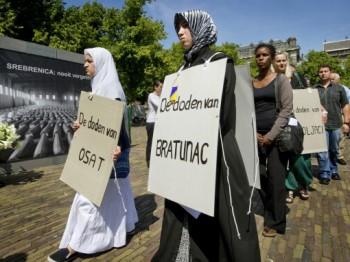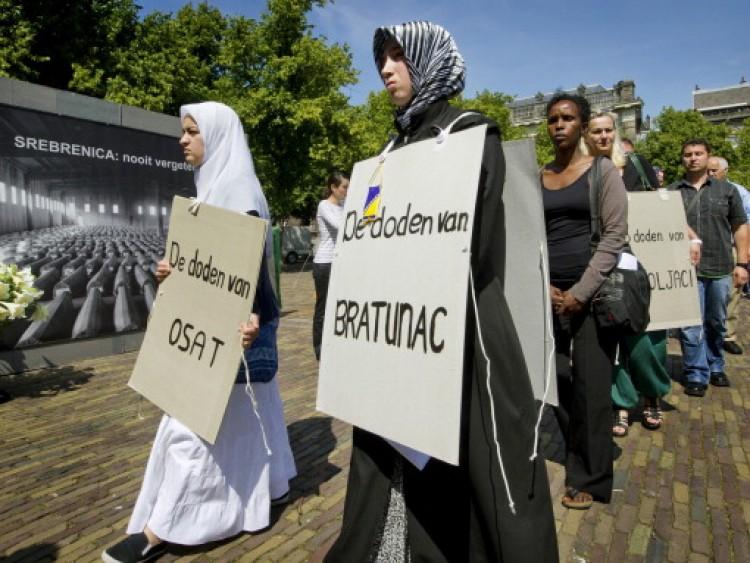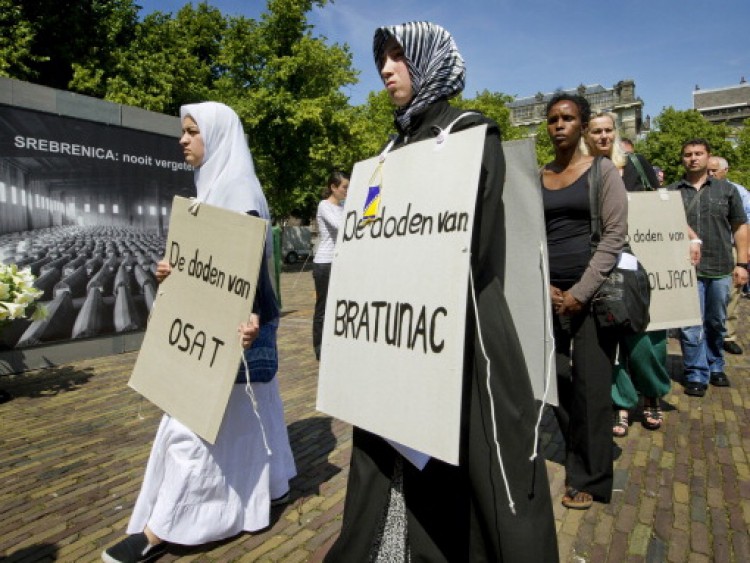Bosnia Marks Massacre Anniversary
Bosnia’s small eastern town Srebrenica on Monday marked the 16th anniversary of the 1993-95 civil war.

People gather to commemorate the 16th anniversary of the Srebrenica massacre in the Hague, on July 11. Marcel Antonisse/AFP/Getty Images
|Updated:





